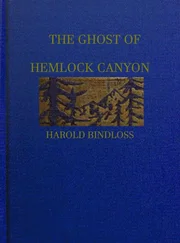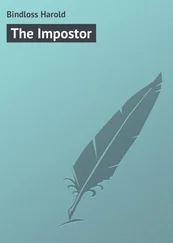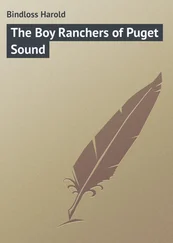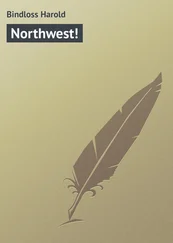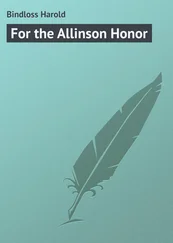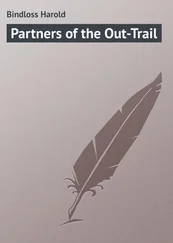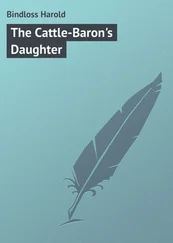Harold Bindloss - Lorimer of the Northwest
Здесь есть возможность читать онлайн «Harold Bindloss - Lorimer of the Northwest» — ознакомительный отрывок электронной книги совершенно бесплатно, а после прочтения отрывка купить полную версию. В некоторых случаях можно слушать аудио, скачать через торрент в формате fb2 и присутствует краткое содержание. Жанр: foreign_prose, foreign_language, на английском языке. Описание произведения, (предисловие) а так же отзывы посетителей доступны на портале библиотеки ЛибКат.
- Название:Lorimer of the Northwest
- Автор:
- Жанр:
- Год:неизвестен
- ISBN:нет данных
- Рейтинг книги:4 / 5. Голосов: 1
-
Избранное:Добавить в избранное
- Отзывы:
-
Ваша оценка:
- 80
- 1
- 2
- 3
- 4
- 5
Lorimer of the Northwest: краткое содержание, описание и аннотация
Предлагаем к чтению аннотацию, описание, краткое содержание или предисловие (зависит от того, что написал сам автор книги «Lorimer of the Northwest»). Если вы не нашли необходимую информацию о книге — напишите в комментариях, мы постараемся отыскать её.
Lorimer of the Northwest — читать онлайн ознакомительный отрывок
Ниже представлен текст книги, разбитый по страницам. Система сохранения места последней прочитанной страницы, позволяет с удобством читать онлайн бесплатно книгу «Lorimer of the Northwest», без необходимости каждый раз заново искать на чём Вы остановились. Поставьте закладку, и сможете в любой момент перейти на страницу, на которой закончили чтение.
Интервал:
Закладка:
“And you have not danced for four years!” she said as I led her through the press. “Well, it has all come back to you, and out here there is so much more than dancing for a man to do. Yes, you may put down another, there toward the end, and fill in the next one two. I have been looking forward to a quiet talk with you.”
I was left alone with pulses throbbing. There was very little in what she said, but her face showed a kindly interest in our doings, and it was no small thing that the heiress of Carrington should place me on the level of an old friend. Harry was chatting merrily with his late partner, who seemed amused at him, and this was not surprising, for Harry’s honest heart was somewhat strangely united with a silver tongue, and all women took kindly to him. I found other partners and he did the same, so it was some time before we met again, and I remember remarking that all this gaiety and brightness seemed unreal after our quarters at Fairmead, and ended somewhat lamely:
“I suppose it’s out of mere pity she danced with me. As you said, we are of the soil, earthy, and a princess of the prairie is far beyond our sphere. Yet she seemed genuinely pleased to see me. If it were even you, Harry!”
He laughed as he pointed to a large mirror draped in cypress, saying, “Look into that. You are slow at understanding certain matters, Ralph. Not seen the whole of your noble self in a glass for two years? Neither have I. And it hasn’t dawned upon you that you came out in the transition stage – a grub, or shall we say a chrysalis? No, don’t wrinkle your forehead; it’s only an allegory. Now you have come out of the chrysalis – see?”
Part of this was certainly true, for at Coombs’ we had the broken half of a hand-glass to make our simple toilet, and at Fairmead a whole one of some four inches diameter which cost two bits, tin-backed, at the store, and I remember saying that it was an extravagance. Now I stared into the long glass, standing erect in my one gala garment of fringed deerskin.
“A little too bull-necked,” Harry remarked smiling, “but, except for Raymond Lyle, the stiffest-framed man in the room. Solid and slow from shoulders to ankles; head – shall we say that of a gladiator, or a prize-fighter? Good gracious, Ralph, remember you’re in a ball room, not trying on your trousseau.”
His remarks were not exactly flattering, but for the first time I felt glad to stand a strong man among those who had other advantages behind them, though I fumed inwardly when presently I heard Harry’s partner say:
“What a curious man your friend is! I saw him standing before the big glass actually admiring himself.”
And Harry had the mendacity to assure her that this was a favorite habit of mine.
Afterward I chatted for a time with the giver of the feast. We had much in common, for he was a stalwart plainly spoken man whose chief concern was the improvement of his holding, and from what he said it was clear that taking season by season his bank account increased but little, while he mentioned that several of his neighbors lost a certain sum yearly. There are two ways of farming in the West, and it seemed that after all Harry and I had chosen the better, the creeping on from acre to acre, living frugally, and doing oneself whatever is needed, then investing each dollar hardly saved in better implements.
Nevertheless, I saw that the men of Carrington who followed the other plan, spending and hiring freely, were doing a good work for the country, because even if they lost a small sum each year most of them could afford it, and their expenses would have been much greater at home. They helped to maintain a demand for good horses and the product of clever workmen’s skill; they supported the storekeepers of the wooden towns; and the poorer settlers could always earn a few dollars by working for them. So it dawned upon me that it is well for the nation that some are content to take their pleasure, as these men did, in an occupation that brought them small profit, sinking their surplus funds for the benefit of those who will follow them. Neither does the mother country lose, because she reaps the fruit of their labors in the shape of cheap and wholesome food.
At last the conversation drifted around to the founder of Carrington.
“An austere man,” said Lyle, “and he’s somewhat different from the rest of us – ready to gather in wherever he can, very hard to get ahead of at a deal; but if he is keen it’s all for the sake of his daughter. There are two things Carrington is proud of, one is this settlement, and the other his heiress. He’s not exactly an attractive personage, but there are whispers that some painful incident in her mother’s life soured him, and one learns to respect him. His word is better than most other men’s bond, and if his will is like cast iron his very determination often saves trouble in the end.”
Silence succeeded, for bold chords of music held the assembly still, and I saw Harry seated at the piano, which apparently had escaped serious damage in its long transit across the prairie. This was a surprise, for I had not suspected Harry of musical proficiency. There was power in his fingers, hardened as they were, and when the ringing prelude to an English ballad filled the room more than his partner felt that he could call up a response to his own spirit from the soul of the instrument. The lad beside him also sang well, perhaps because he was young and sentiment was strong within him, but sturdy labor under the open heaven seems inimical to the development of hypercritical cynicism, and the men who at home would probably have applauded that song with an indulgent smile listened with kindling eyes and then made the long room ring with their bravos. Here, far away from the land that bred them, they were Britons still, and proud of their birthright.
Then Grace Carrington sang, and I would have given years of my life for Harry’s skill, which seemed a bond between them as she smiled gratefully upon him. The words were simple, as became the work of a master who loved the open, and the music flowed with them like the ripple of a glancing water; so a deeper silence settled upon all, and I was back in England where a sparkling beck leaped out from the furze of Lingdale and sped in flashing shallows under the yellow fern, while somewhere beyond the singer’s voice I could almost hear the alders talking to the breeze. When it ceased the sound grew louder, but it was only a bitter blast that came from the icy Pole moaning about the homestead of Lone Hollow.
Raymond Lyle stepped forward to express the wish of the rest, and Grace bent her fair head to confer with Harry, who nodded gravely, after which she stood still, while a stately prelude that was curiously familiar awoke old memories. Then the words came, and from the lips of others they might have seemed presumptuous or out of place, but Grace Carrington delivered them as though they were a message which must be hearkened to, and there was an expectant hush when the first line, “A sower went forth sowing,” rang clearly forth. Later some of those about me breathed harder, and I saw that big Raymond’s eyes were hazy, while one hard brown hand was clenched upon his knee, as in sinking cadence we heard again, “Within a hallowed acre He sows yet other grain.”
Then after the last note died away and there was only the moaning of the wind, he said simply, “Thank you, Miss Carrington. I am glad you sang it at the Lone Hollow harvest home.”
“I would never have played it here for any one else,” said Harry presently. “These things are not to be undertaken casually, but she – well, I felt they had to listen, and I did the best that was in me. I think it was her clean-hearted simplicity.”
It was some time afterward when I led Grace out and spent a blissful ten minutes swinging through the mazes of a prairie dance, before we found a nook under dark spruce branches from the big coulée, where Grace listened with interest while I told her of our experiences in the Dominion. The background of somber sprays enhanced her fair beauty, and her dress, which, though there was azure about it, was of much the same color, melted into the festoon of wheat stalks below. The French-Canadian was playing another of his weird waltzes, and it may have been this that reminded me, for now I remembered how I had seen her so before.
Читать дальшеИнтервал:
Закладка:
Похожие книги на «Lorimer of the Northwest»
Представляем Вашему вниманию похожие книги на «Lorimer of the Northwest» списком для выбора. Мы отобрали схожую по названию и смыслу литературу в надежде предоставить читателям больше вариантов отыскать новые, интересные, ещё непрочитанные произведения.
Обсуждение, отзывы о книге «Lorimer of the Northwest» и просто собственные мнения читателей. Оставьте ваши комментарии, напишите, что Вы думаете о произведении, его смысле или главных героях. Укажите что конкретно понравилось, а что нет, и почему Вы так считаете.

